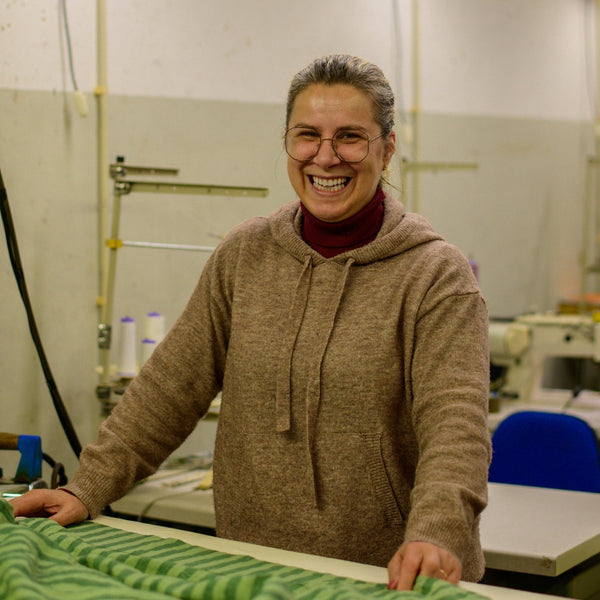We caught up with Australian author, Kate Morton, as she unveils her latest novel: Homecoming. Morton's seven novels have topped bestseller lists around the world, each regaling mysterious plots with family secrets at the heart, in a series of twisted plots and vivid settings. A captivating read, you can purchase Kate’s latest book just here.
- Homecoming feels like a landmark book for you. Set in Australia, touching on very personal themes. Is that right? How do you see this book?
HOMECOMING is a very special book for me. I was living in London and had started work on something else when the pandemic sent my family back to Australia in March 2020 for what we thought would be a short period. As weeks turned to months, living near my extended family in the landscape of my childhood, I found myself thinking about home and belonging and especially what it means to ‘come home’. Long, surreal days of quarantine spent on a sunlit farm in the Adelaide Hills, surrounded by the sublime natural world and an unusual amount of quiet, provided just the right conditions for such thoughts to coalesce around characters and a story.
- How did your childhood shape you as a writer do you think?
I’ve always been an observer, and growing up in the small, misty rainforest village of Tamborine Mountain provided an environment that fed my imagination. Reading was valued in my family, play was encouraged, my sisters and I had a lot of freedom and very few technologies to fall back on. My mum was an antiques dealer, so we spent countless hours exploring flea markets and dark, dusty second-hand shops; we put on shows, wrote books, and travelled everywhere by bike. We had just the right amount of boredom to force creativity.
- You trained to be an actor. Why did you switch to writing?
At school, I was very academic. I loved maths, English, history, and started an Arts/Law degree at university. Around the same time, I began performing in local stage productions on Tamborine Mountain, directed by my old friends and drama teachers, Herbert and Rita Davies. I loved the power and magic of theatre and went on to study Shakespeare performance in London. There is still no better feeling, as far as I’m concerned, than the moment that the house lights fade and the audience draws collective breath. Nonetheless, when I decided to give writing a go, I knew from the first that I’d found what I was meant to do: time disappeared. The discipline of writing – dreaming, wordsmithing, but also problem solving and structuring narrative – provides the ideal pursuit for a left-handed, maths-loving Romantic with a passion for words and stories.
- Many of the characters in your books share with you a love of reading, and there’s an overarching theme of books as important, even formative, influences in people’s lives. Did any books or movies particularly inspire Homecoming?
There is a tradition in Australian fiction of the lost child. In the nineteenth century it was a way of exploring colonial anxieties about an unfamiliar, unforgiving landscape. Such stories have an eerie overtone, a sense that danger lurks ‘out there’, beyond what can be seen; I sought to capture a hint of this atmosphere in my prologue. More generally, the characters in HOMECOMING reference many books and narrative traditions: from Thomas Turner’s infatuation with the folklore and bush poetry of Australia, to the English classics favoured by Percy and, later, Jess—books that make a faraway time and place feel like ‘home’ by forming landscapes of imagination in their reader’s mind. One of the things I love most about the cover of HOMECOMING is that, along with featuring two of my favourite Australian treasures – a superb fairy wren and sprigs of golden wattle, it conjures a sensation I craved during childhood, of lying in the garden with a book, reading avidly, and gazing now and then through the foliage towards the sky. It is this feeling of being enveloped within the world of a story that I still crave as a reader and that I seek to create as a writer.
- Is there any of you in the character of Jess in Homecoming?
Like me, Jess returns to Australia from London due to unforeseen circumstances. We both pondered matters of home and belonging, but upon arrival Jess is met with a far more tantalising mystery than I was.
- Does your family read your novels and do they offer any helpful commentary?
My husband, mum, sister and (sort of) cousin are my earliest readers. My dad also read an advance copy of HOMECOMING and had some helpful copyediting queries pertaining to wild dogs and their mid-century habits…
- What would you like readers to take away from Homecoming?
First and foremost, I seek to tell an engaging story about characters and places that feel real. But storytelling is about connecting, and I like to think that each time one of my books is read, no matter where, when, or by whom, there occurs a meeting of minds. It remains a great comfort and privilege to be able to put my own thoughts and feelings about the human experience into words, and then send them out into the world where a reader might say, ‘I feel that too’.
- All of your books centre around incredibly immersive settings. What do you want your readers to experience when they disappear inside the book?
I aim for bereavement when the book is over. I want to absorb readers to the point where they miss the world of the novel when it’s finished, to evoke that feeling we all know, when you start to tell a friend about a recent experience, something you saw or heard or felt, and then stop, because you realise that it didn’t happen in your real life; it was something you read. I am also driven, as a person, as a writer, to communicate – to share my experience of the world with others: this book, while not autobiographical, is like all of my books, a time capsule of my life during the time in which it was written.
Home, belonging, family: these were topics at the forefront of my mind over the past few years. Jess comments at the end of Homecoming that the adverse feeling to being ‘at home’ is loneliness: if by telling the story of Jess, Polly and Nora, by illustrating their inner lives, I have sparked recognition in a single reader, then I celebrate our quiet moment of human connection in this great big messy wonderful world we share.



























